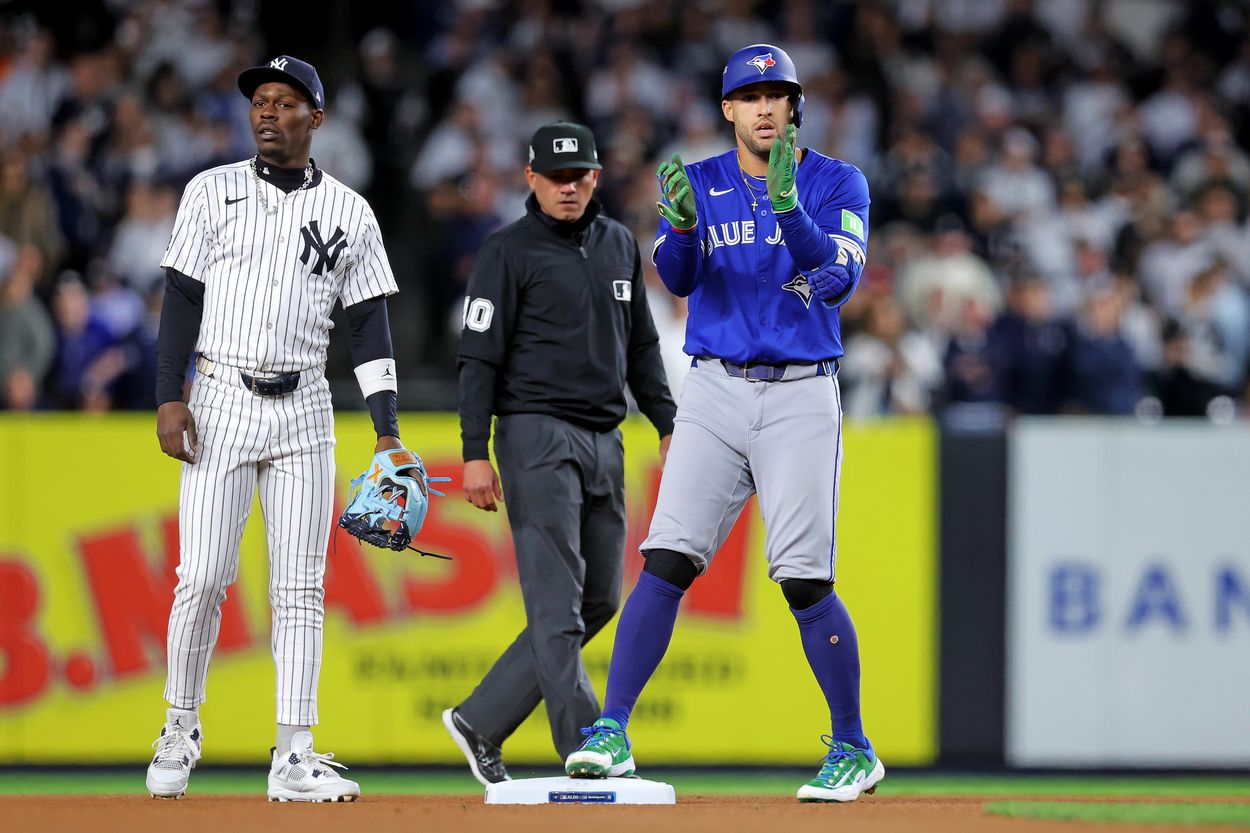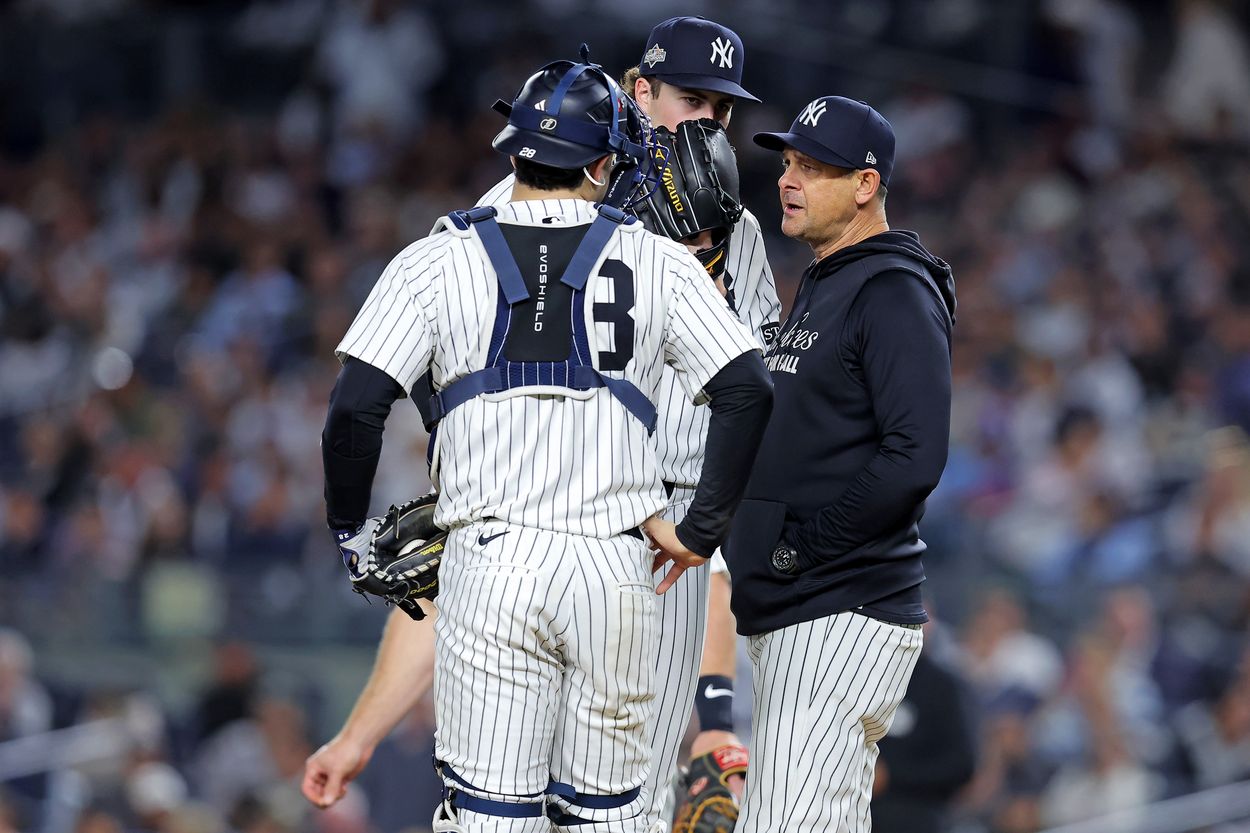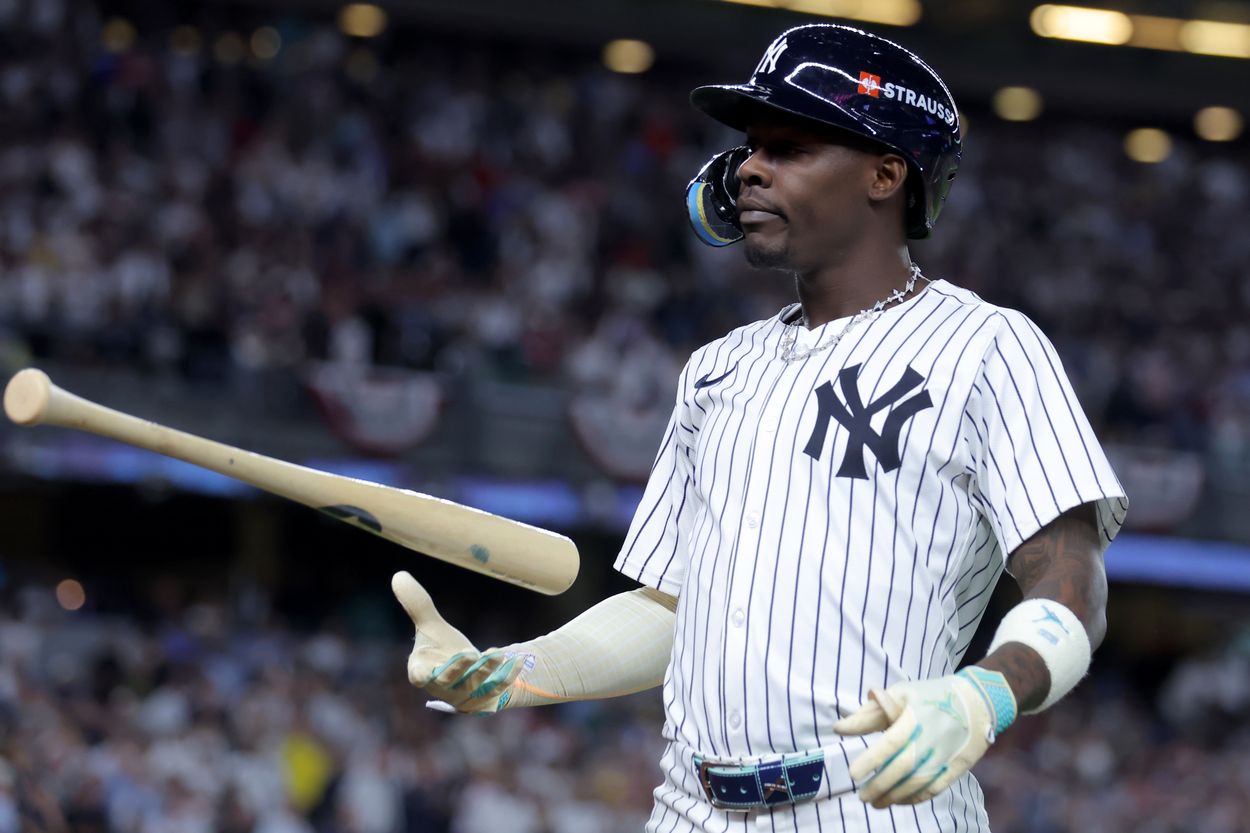
The New York Yankees’ season came to an abrupt and painful end on Wednesday night in the Bronx. Despite a solo shot from Ryan McMahon and a late RBI single by Aaron Judge, New York fell flat in a 5–2 loss to the Toronto Blue Jays — a defeat that sealed a 3–1 series win for Toronto and sent the Yankees home earlier than they ever expected.
This was supposed to be the October when the Yankees broke through again. Instead, they were left standing in disbelief as the Blue Jays celebrated on their field — the sounds of champagne and laughter echoing through the visitors’ clubhouse while the home dugout sat silent.
Blue Jays’ relentless contact wears down New York
Toronto didn’t just beat the Yankees with power — they beat them with precision. Every inning felt like a slow squeeze, the kind of pressure that never lets up. The Jays struck out only six times all night (three before David Bednar entered the game) while racking up 12 hits, a continuation of their relentless approach throughout the series.

Even when they lost on Tuesday, Toronto still managed six runs. By Game 4, it was clear: this lineup wasn’t going to strike out. They were aggressive, fouled off tough pitches, and punished every mistake. In many ways, the Yankees’ pitchers were playing a game of chess against opponents who refused to blink.
That calm, controlled aggression — the ability to grind through at-bats — was the difference between a team moving on and one packing its bags.
Jazz Chisholm Jr.’s error shifts the momentum
The turning point came in the seventh inning, and it was cruel. With Toronto up 2–1 and the Yankees desperate for an escape, Jazz Chisholm Jr. had a chance to start an inning-ending double play on a grounder up the middle. Instead, the ball clanked off his glove — a split-second mistake that changed everything.
Instead of walking off the field, the Yankees were left watching Nathan Lukes punch a two-run single into center, stretching the Blue Jays’ lead to 4–1. That was the dagger.
Chisholm’s fielding mishap was a painful echo of his overall series — full of energy and effort but ultimately short on execution. He finished with a .182 average and a .598 OPS, numbers that don’t tell the full story of how crucial his missed plays and cold bat were. Tuesday’s go-ahead homer briefly offered redemption, but by Wednesday night, the weight of that seventh-inning error hung heavy on his shoulders.

Slumping bats sink Yankees’ comeback hopes
Chisholm wasn’t alone in his struggles. Trent Grisham and Anthony Volpe both had series to forget. Grisham repeatedly came up empty with runners on base, including back-to-back chances in the eighth and ninth innings when the Yankees needed just one big swing to change the game’s tone.
Volpe’s struggles were perhaps the most glaring. After showing promise early in the postseason, he looked lost by the end — going 0-for-3 with three strikeouts in the finale. His .192 average and .538 OPS painted the picture of a player pressing too hard under the bright lights. Manager Aaron Boone’s decision to stick with him over Jose Caballero now looks questionable in hindsight, especially with men on in the seventh.
In the postseason, heroes are often born from moments like these. The Yankees had Judge, who had a brilliant postseason, but no one else showed up.
Cam Schlittler’s strong effort goes unrewarded
If there was one silver lining for New York, it was the performance of rookie right-hander Cam Schlittler. Facing one of baseball’s most disciplined lineups, the young pitcher delivered 6.1 gritty innings, allowing four runs — though only two were earned due to Chisholm’s costly error.
He scattered eight hits, didn’t issue a walk, and struck out two. It wasn’t dominant, but it was composed and efficient — the kind of outing that should have given the Yankees a fighting chance.
In fact, Schlittler almost gave them more innings than Luis Gil, Max Fried, and Carlos Rodón combined across the first three games of the series. For a young arm thrust into postseason pressure, it was an impressive sign of maturity and poise. Unfortunately, it went to waste.
A bitter ending to a once-promising season
The Yankees had bases loaded in the eighth, down four. It felt like one last opening — a crack in the door to extend their season. Instead, it ended as so many rallies did this October: with a weak flyout and missed opportunity.
When the final out was made, there was no doubt the better team had advanced. The Blue Jays were sharper, more disciplined, and mentally tougher. The Yankees, meanwhile, were left with a long winter of what-ifs.
In the end, it wasn’t one big collapse but a thousand small cuts — each strikeout, each misplay, each missed chance — that ended their season. Baseball can be cruel that way: sometimes it’s not the storm that sinks you, but the steady leak you never patched.
